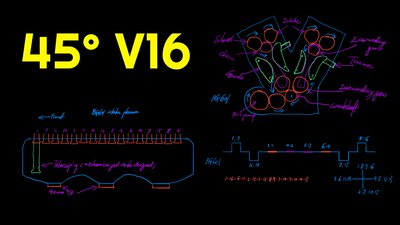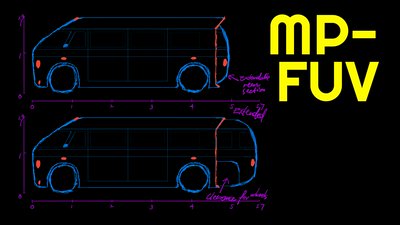techParis
The Electric Car Conspiracy: Why We Show No Love for Hydrogen
Hydrogen is a more sustainable source of energy for cars than battery electric. It isn’t getting the love it deserves, because of capitalism’s need for p...
Published by Dr Jiulin Teng on 06 Feb 2021 · Updated on 25 Jul 2021

In the last decade, battery electric cars have dominated the automotive media when renewable energy is the topic. While these vehicles are emission-free on the road, they are not pollution-free: their large capacity lithium-ion batteries are poisonous to make and fully unrecyclable.
At the same time battery electric seizes the public attention, we have another renewable energy source: hydrogen. Hydrogen can be burnt much like ultra-high-octane petrol (gasoline) in modified petrol engines; BMW marketed the Hydrogen 7 over 15 years ago! Alternatively, hydrogen can be used to generate electricity, as Toyota’s Mirai and 2nd-gen Mirai hydrogen fuel-cell cars have shown.
The question we should be asking is: Why are we not showing more love for hydrogen? What may be the motive behind the push for battery electric cars?
Hydrogen as a Cleaner Solution
As suggested above and commonly known, the manufacturing of lithium-ion batteries is a destructive process, with long-term environmental consequences matching, if not surpassing that of climate change. A large array of heavy metals have to be mined, shipped half-way around the world, and manufactured in a process that is immensely energy-intensive.
In contrast, hydrogen, when consumed in the old-fashioned way, greatly reduces the environmental footprint of vehicle manufacturing compared to the present day. This is because over half of the components related to internal combustion engines are there for proper fueling and exhaust processing: When the fuel (hydrogen in this case) does not produce any pollutant in the combustion process, much of the complexities added in the fuel and exhaust system in the last four decades can be removed. Vehicles will be cheaper to make, less costly to maintain, and likely much more durable, all while helping the environment.
As a side note, when I mention that the environmental consequence of these unrecyclable batteries can surpass that of climate change, I mean that we need to consider the reversibility of the environmental impacts: Whereas carbon capture technology being developed can be commercialized in the near future to neutralize the effects of carbon emissions, recycling lithium-ion batteries is completely off the agenda and may not be feasible for centuries. Of course, even considering carbon emissions, hydrogen is a better alternative.
Beyond the battery issue, hydrogen cars can be LIGHTER, rather than heavier than cars today, due to the aforementioned reduction in complexity. Battery electric cars, on the other hand, are almost always heavier, due to the lower energy density of batteries.
Last but not only, batteries degrade. Anyone who has owned a smartphone knows that lithium-ion batteries simply lose capacity as they age, sooner rather than later. In comparison, internal combustion engines can easily last a quarter million miles, if not more; there is no reason to believe this is not the case when they are modified to burn hydrogen, which is a MUCH higher-octane and infinitely cleaner fuel.
Hydrogen fuel cell technology is another interesting alternative that generates electricity from hydrogen fuel while retaining only a small battery. It also enjoys the same set of advantages of hydrogen combustion engines mentioned above.
Current Difficulties with Hydrogen
Despite the benefits in smaller environmental impact and superior durability, hydrogen is rarely mentioned in the automotive media. There are some limiting factors that we cannot ignore.
The most obvious is the lack of infrastructure. Unlike petrol (gasoline), which is stored at the atmospheric pressure, hydrogen is pressurized to 700 times that (H70 standard). This is necessary because hydrogen is a gas at normal temperatures (above 20.28K / -252.87C / -423.17F) and 1 bar. This means that hydrogen fuel stations are much costlier to build than conventional gas stations.
The second factor is related to its volatility. Hydrogen is highly combustible. Anyone knowing the Hindenburg disaster will likely think twice about putting it in their cars or going near a hydrogen fuel station.
The third factor is the production of hydrogen. Currently, most of the hydrogen production relies on the Steam Reforming process that uses fossil fuel and releases CO2.
Nevertheless, these difficulties are being overcome and do not look worse than the case of battery electric.
While hydrogen fuel stations can be costlier to build than high-voltage charging stations for battery electric cars, they offer much higher capacity in comparison. A vehicle can be refueled in under five minutes and give the same range as an electric car that needs an hour to charge to “almost full”. As a result, a single hydrogen pump can serve several times what a single charging post can.
Secondly, while hydrogen is a highly combustible fuel, it is not poisonous. New technologies are mitigating fire risks and there is no doubt that more are to come.
Last but not least, we already have the technology to manufacture hydrogen fuel from water. Its current issue is the amount of energy needed in this process. However, with renewable electricity taking over in the coming decades, the production of hydrogen will essentially have zero environmental footprint. Besides, the same point can be raised for battery electric cars, which frequently use electricity from coal power plants that are more polluting than petrol.
The Battery Electric Car Conspiracy
If hydrogen really enjoys these advantages, why are we not talking about it as a serious renewable energy source for our vehicles? I believe that we must look into the capitalist system and the profit incentive for answers.
Without digressing into another, more controversial topic, it suffices to say that the capitalist system is driven by the its namesake, money.
How much money is there to make if we build simpler versions of vehicles as compared to today and use a fuel that can be fully clean? How much more money can be made if we tear down an entire industry and rebuild the entire value chain?
While hydrogen fuel stations are expensive to build, this cost is nothing compared to building and scaling an entire battery manufacturing value chain.
I am not suggesting that some conniving character plotted to push for battery electric cars: I am saying that the profit incentive is so institutionalized in the capitalist system that there need not be any such design.
Even if we are to eventually transition to hydrogen, battery electric is a phase necessitated by profit. In the meantime, perhaps recycling those environmentally disastrous batteries will be another profitable business, the opportunity for which we are eagerly manufacturing right now.



